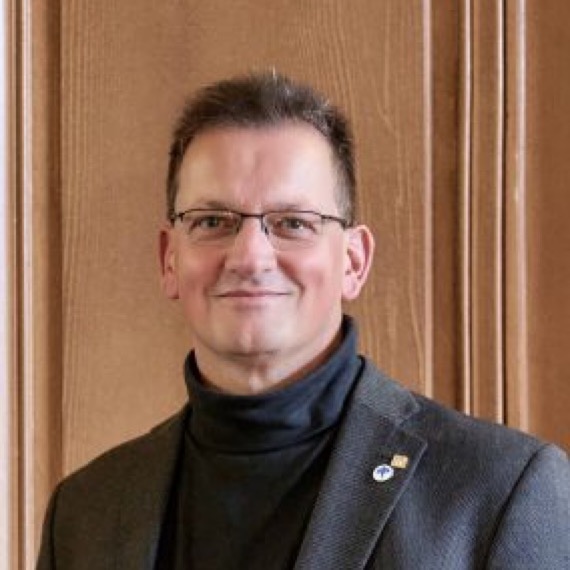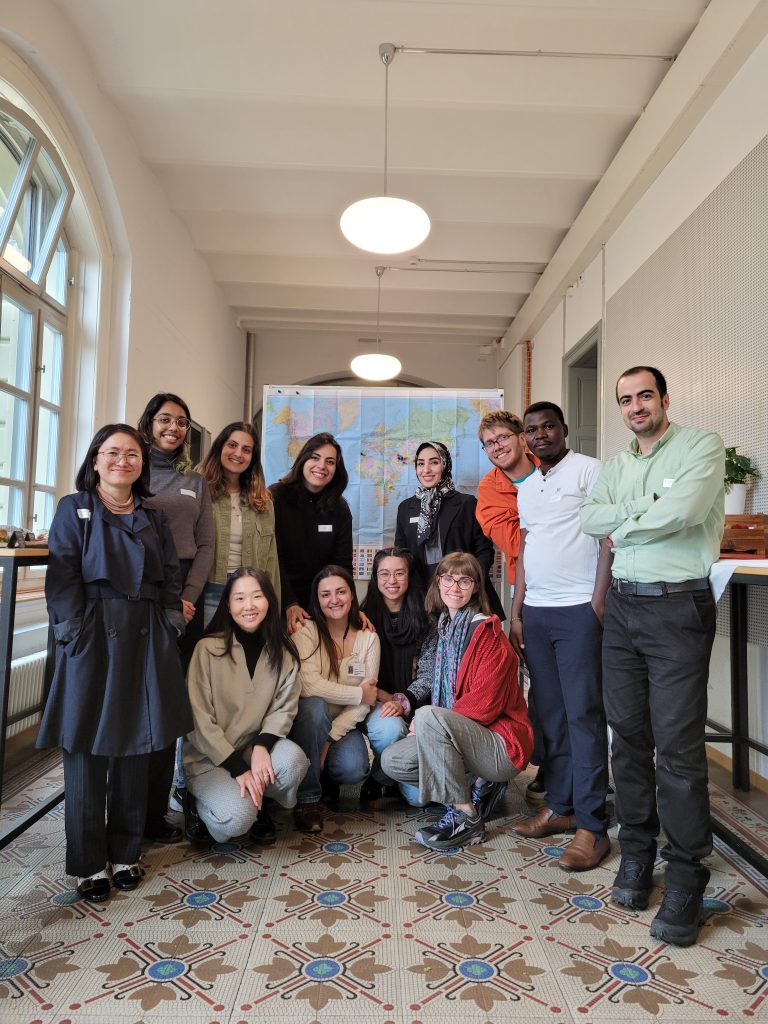Existential funding crisis averted
Swiss Government Excellence Scholarships narrowly escape drastic funding cuts

The Swiss Parliament was all but set on cutting half of the funding for the Swiss Government Excellence Scholarships (ESKAS). This funding programme supports researchers from all over the world to pursue doctoral or postdoctoral research in Switzerland. Sebastian Leidel, Professor at the Department of Chemistry, Biochemistry and Pharmaceutical Sciences and ESKAS delegate for the University of Bern, explains how these cuts threatened the survival of the scholarship programme and why it deserves to survive.
Professor Leidel, the Swiss Government Excellence Scholarships recently caused a lot of controversy in parliament?
It was characteristic for this debate that the word “excellence” was dropped in parliament. The item on the agenda was “Scholarships for foreign students in Switzerland”. However, this term is not correct and shows a lack of understanding for how the selection of the successful candidates for ESKAS works. These are PhDs and post doctoral researchers who make important contributions to scientific research in Switzerland – research excellence is what it’s all about in this scholarship.
The successful scholarship holders achieve a high research output at a relatively low cost. In that sense this is probably the most efficient scholarship programme I know. Therefore, even small budget changes have big effects on the scholarship holders. In fact, the funding has never been increased in the last 30 years, which means a big cut in real terms (i.e. after inflation).
“The scholarship is extremely competitive”
Sebastian Leidel
The scholarship is extremely competitive. For each application round I personally review on average 50 research projects and out of these one to maybe four candidates are selected. We are talking about a success rate of 5-10% here. It always is a really difficult choice! I look at some of these applications and say to myself: wow – these are such impressive CVs!
What would these funding cuts have meant for grantees of the scholarship?
The original plan was to cut the budget of the Swiss Government Excellence Scholarships by CHF 4.8 million, which is roughly 50% of the entire scholarship programme. This would have meant that by May or June we would have had to send everyone home because the money would have been used up. Since this academic year began in autumn 2024, the budget for 2025 is already fully committed. For some scholarship holders these cuts would have come just months before the completion of their PhD.
The ESKAS commission also does the selection for bilateral research funding programmes, such as Fulbright in the USA. These are Fulbright scholars who want to come to Switzerland and for the time they are here they are part of the Swiss Government Excellence Scholarship programme. In return, Swiss researchers receive funding from agencies abroad in a reciprocal system. In such cases, we would have broken our contracts with research funding agencies in partner countries.
Is this scholarship development aid or research support?
I work in the field of life science and there – as in many other fields – we need different viewpoints and fresh perspectives. Having people from diverse backgrounds is essential to achieving new breakthroughs. The scholarship funds individual research projects that are embedded in a research group at a Swiss university. ESKAS funds a step of their career, which helps them as scientist, and we fund their work in a research group, which supports the larger research project they are embedded in.
This scholarship is open to applicants from almost any discipline based almost anywhere in the world. Many other funding programmes have narrower geographical criteria, which for instance means that researchers from sub-Saharan Africa rarely get a chance to come to Switzerland to do their research.
“Having people from diverse backgrounds is essential to achieving new breakthroughs.”
Sebastian Leidel
About half of the recipients are from developing countries, but our aim is not to contribute to a brain drain from these countries. We are privileged to be allowed to invite excellent young talents to contribute to our work here in Switzerland. They in return receive research training.
Once the scholarship holders have completed their research, about 80% of them return to their home countries. They often count as some of the best trained experts in their fields. Many of them go on to hold top positions in their home countries. Moreover, they form an informal network of excellent minds who are grateful to Switzerland for the chance they have been given.
What are the controversial aspects of the scholarship?
Because the funding is so limited, the Swiss Government Excellence Scholarships receive a stipend that is lower than say a PhD student who is funded by the Swiss National Science Foundation (SNSF). So, two researchers could work side by side in a lab doing the same work but receiving a different salary.
If we increase the stipend, we will lower the acceptance rate even more, perhaps lower than is viable for running a research scholarship programme. Without an increase in funding the only way to remedy this problem is to ask our partner universities to provide matching funds.

What is your vision for the future of the Swiss Government Excellence Scholarships and its recipients?
When we were fighting these funding cuts, I emailed all supervisors of grantees at the University of Bern. Within five hours, almost everyone had responded. This shows how much the contribution of these scholarship holders is valued by their research teams. I am deeply grateful to the supervisors and the Executive Board of the University of Bern for their backing.
We then wrote to many members of the National Council and the Council of State and were overwhelmed by the support we received. Because of all this support, the funding cut of 50% was averted. Instead, the budget will be cut by 16%, which is still painful but means the scholarship programme will survive.
I have grown very fond of the Swiss Government Excellence Scholarships and its holders over the years. I believe they are an invaluable asset of the research landscape in Switzerland. I want it not just to survive, but to flourish. I hope the contributions these young people bring to our research will be recognised and valued more in the future.
Most of all, I hope we will stop 30 years of creeping budget cuts and take the scholarship programme into the future on a secure funding basis that will secure its existence and will allow its network of scholars to grow.
About Sebastian Leidel
Sebastian Leidel is Professor at the Department of Chemistry, Biochemistry and Pharmaceutical Sciences and ESKAS delegate for the University of Bern. He leads the the Research Group on RNA Biochemistry. Before joining the University of Bern, he received an ERC Starting Grant in 2012, was a Lecturer at ETH Zürich, and Group Leader at the Max Planck Institute for Molecular Biomedicine.
About the Swiss Government Excellence Scholarship programme
Since 1961, the Swiss Confederation offers talented foreign students and researchers Swiss Government Excellence Scholarships. They are awarded by the Federal Scholarship Commission for Foreign Students (ESKAS). The scholarships are generally awarded for one year and doctoral scholarships can be extended for up to three years. ESKAS currently awards approximately 400 scholarships per year. Of the total number of grants, 90% support research (at Swiss universities, federal institutes of technology and universities of applied sciences) and 10% fund art scholarships (at conservatories as well as art colleges). To date, over 9700 foreign students and researchers have received Swiss Government Excellence scholarships.
Interview: Caspar Bienek
Images: Sebastian Leidel and Jasmin Fallahi